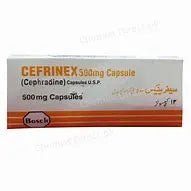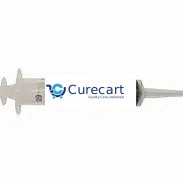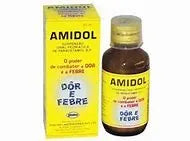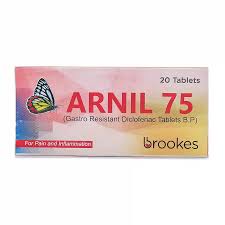Cefrinex (Cephradine) is a first-generation cephalosporin antibiotic used to treat various bacterial infections. It is effective against infections in the upper and lower respiratory tract, urinary tract, skin and soft tissue, and ear, nose, and throat.
Description
Cefrinex is available in capsule form, containing 250mg of cephradine per capsule. It can be administered orally or via injection, making it versatile for different treatment needs. The medication is particularly useful in the prophylaxis of infections during surgical procedures, especially in cases where the risk of infection is high, such as vaginal hysterectomy, cesarean section, and prosthetic arthroplasty.
Therapeutic Indications
Cefrinex is indicated for the treatment of several types of infections, including:
- Upper Respiratory Tract Infections: Sinusitis, pharyngitis, tonsillitis, laryngo-tracheo bronchitis, and otitis media.
- Lower Respiratory Tract Infections: Acute and chronic bronchitis, lobar and bronchopneumonia.
- Urinary Tract Infections: Cystitis, urethritis, and pyelonephritis.
- Skin and Soft Tissue Infections: Impetigo, abscess, cellulitis, and furunculosis.
- Gastrointestinal Tract Infections: Bacillary dysentery, enteritis, and peritonitis.
Dosage and Administration
For adults, the usual dosage of Cefrinex varies depending on the severity of the infection:
- Respiratory Tract Infections and Skin Infections: 250mg or 500mg four times daily or 500mg or 1g twice daily.
- Urinary Tract Infections: 500mg three or four times daily.
- Bone Infections: 1g qid administered intravenously.
- Severe Infections: 2g qid given intravenously, or increased by giving injections every four hours.
For prophylaxis before surgery, a dose of 1g IV or IM is recommended 30 to 90 minutes prior to the start of surgery, followed by additional doses every 4 to 6 hours postoperatively for up to 24 hours.
Specific Populations
Patients with renal impairment should be monitored closely, as plasma concentrations of cephradine are prolonged in such cases. Additionally, patients with rare hereditary problems of galactose intolerance, total lactase deficiency, or glucose-galactose malabsorption should not take this medication.








Reviews
There are no reviews yet.